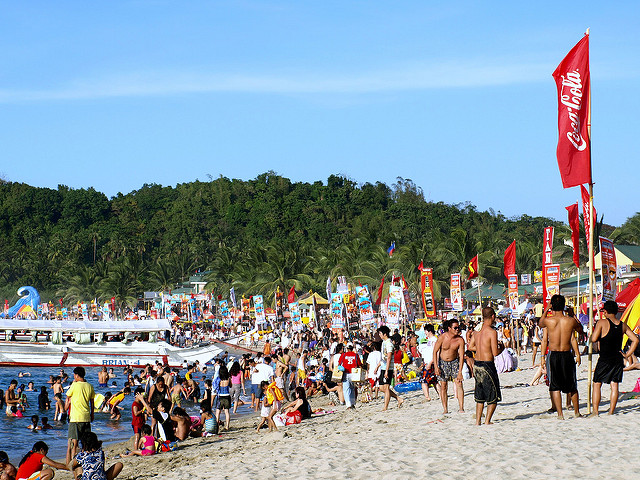News
House to hear nCoV’s impact on tourism, travel industry

FILE: Tourists in Puerto Galera (Photo by Jun Acullador/Flickr, CC BY-ND 2.0)
MANILA — Two committees of the House of Representatives are set to conduct a joint hearing on Wednesday to discuss the impact of the novel coronavirus (2019-nCoV) on the country’s tourism and travel industry.
The House Committee on Economic Affairs and House Committee on Tourism have invited government officials and tourism stakeholders from the private sector to get their views and perspectives on the issue, including Tourism Secretary Bernadette Romulo-Puyat, Board of Airline Representatives (BAR) chairman Genaro Velasquez, Finance Secretary Carlos Dominguez, Health Secretary Francisco Duque III, Trade Secretary Ramon Lopez, and Socio-Economic Planning Secretary Ernesto Pernia, among others.
Speaker Alan Peter Cayetano has directed these two committees to assess the short- and medium-term effects of the 2019-nCoV “to ensure that tourism growth will not be derailed in the next few months”, as well as study the measures to cushion its impact.
Philippine Tour Operators Association president Cesar Cruz cited that about 50 percent of reservations in Boracay, Cebu, and Palawan have been canceled as a result of the imposition of a travel ban to and from China, which is the second-largest tourism market.
The association estimated that the tourism industry has lost at least PHP10 billion so far.
According to the National Economic and Development Authority (NEDA), preliminary estimates indicate that the economy might lose from 0.06 percent of the gross domestic product (GDP), or about PHP11 billion, up to 0.7 percent, or about PHP133 billion, should the virus persist inordinately.
Cayetano said measures should be implemented to strengthen domestic tourism and explore other tourism markets.
He said solutions must be provided to reduce the impact on the livelihood of informal workers dependent on the tourism industry.
Albay Rep. Joey Salceda said tourism accounts for about 2.5 percent of the country’s gross domestic product (GDP), noting that the virus’ effect on the industry would depend largely on how long the 2019-nCoV crisis would last.
“The SARS (Severe Acute Respiratory Syndrome) crisis lasted for around nine months. If it takes the same amount of time before the nCoV crisis abates, the tourism industry may decline to around 2.0 (percent) to 2.2 percent of GDP, depending on whether we can effectively come up with a catch-up strategy,” Salceda said.
Chinese tourists account for about 20 percent of tourist arrivals in the country, he said, “so we can more or less write those arrivals off given the travel ban.
”
Salceda noted that the government must ensure that the extent of the 2019-nCoV infection in the country is not “exaggerated among foreign markets”, as well as ensure that tourist providers are guided on the 2019-nCoV infection prevention and mitigation measures.
As for its overall impact, the 2019-nCoV could reduce the country’s growth potential by 0.1 percent to 0.4 percent from the baseline, depending on how “protracted” the situation becomes, he said.





















